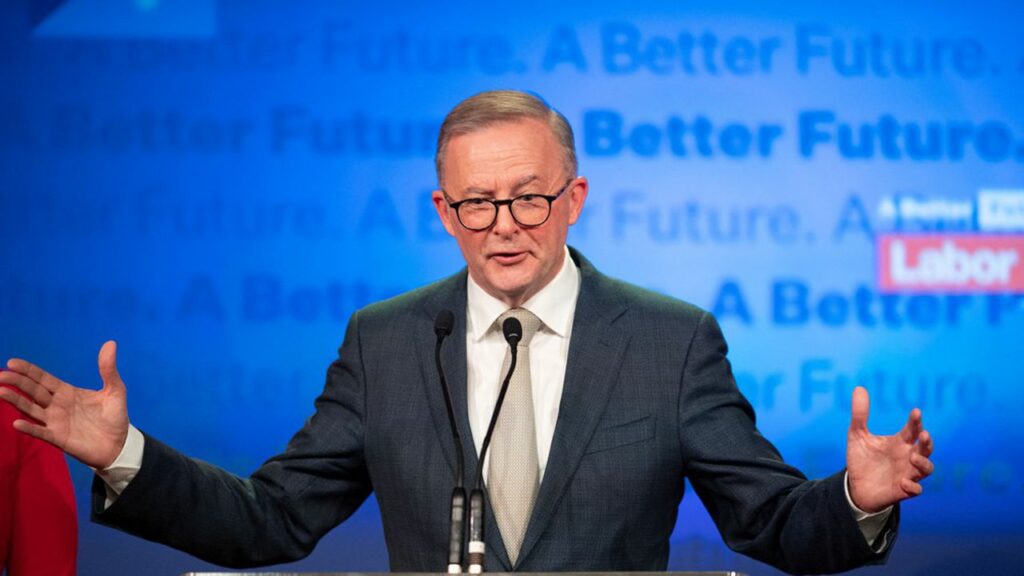You knew « Scomo », now here is « Albo ». Labor leader Anthony Albanese was sworn in as Australia’s new prime minister on Monday.
From Saturday evening, he had not hidden his emotion, when announcing his victory. He had mentioned his modest origins, those of the son of an Italian immigrant whom he did not know, raised by a single mother in a low-income housing project in a working-class suburb of Sydney. And wished that his own journey « inspire Australians to go and get the moon ».
Coming from the left wing of the Labor Party, MP for the district of Sydney where he grew up for 26 years, he spent most of his career in the opposition, even declaring that he liked to “fight against the Tories” . He was, however, Minister of Infrastructure and Transport for six years in the governments of Kevin Rudd and Julia Gillard, and also briefly served as Deputy Prime Minister in 2013, before Labor was removed from power by the conservative coalition.
Paris rejoices
It is the latter which, on Saturday evening, recorded a stinging defeat, losing ground in particular in the big cities. From Sydney to Perth, to Brisbane and Melbourne, voters in traditionally favored constituencies chose to punish them for their inaction on the climate crisis, by voting for the Greens and independents who made environmental their priority.
Abroad, the now ex-Minister of Foreign Affairs, Jean-Yves le Drian, was the first to welcome it. By leaving his diplomatic reserve at the handover ceremony on Saturday. “The defeat of Prime Minister Morrison suits me very well. Because the actions taken with regard to France […] were brutally, cynically and I would even be tempted to say, notoriously incompetent, » said the former boss of the Quai d’Orsay, referring to the termination, in September, of the « contract of the century » by Canberra relating to the acquisition of twelve conventional submarines to be delivered by Naval Group.
no revolution
In this matter, not sure that the 31and Australian Prime Minister comforts France, since Labor has given its full support to the Aukus pact, concluded with Washington and London, as well as the choice to acquire nuclear-powered submarines.
Based on the statements made during the campaign, we should not expect a revolution in Canberra. Labour, which in recent years has strongly reoriented towards the center, supports the detention in offshore camps of asylum seekers, they are the ones who opened the first in 2013; they too who, in 2009, pushed back the retirement age to 67 years. Their climate policy is certainly more ambitious than that of the previous government but it remains, according to many experts, largely insufficient in a country which is one of the main emitters of greenhouse gases per inhabitant of the planet.
Moreover, at this stage, it is not certain that Labor will obtain an absolute majority in Parliament. A situation that would lead them to ally with the Greens and independents, who made a real breakthrough during this election. To gain their support, Labor will have to both warp and green its programme. In truth, they have every interest in it, because their victory is less the result of a membership vote than of a sanction vote against the liberal party. Moreover, the Labor Party lost votes compared to the previous election in 2019, but much less than the Liberals. While the Greens and the independents won.

